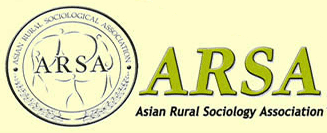International Rural Sociology Association - IRSA

 At the XVII ISA World Congress of Sociology in Sweden (11th-17th July 2010) IRSA has got an invitation to host a session in the slot for “National, Regional and Thematic Associations”. Two sessions were proposed, and we are happy to announce that IRSA was awarded one session called:
At the XVII ISA World Congress of Sociology in Sweden (11th-17th July 2010) IRSA has got an invitation to host a session in the slot for “National, Regional and Thematic Associations”. Two sessions were proposed, and we are happy to announce that IRSA was awarded one session called:
Comparative perspective on the new productivism: Agricultural system and policy responses to increasing food and energy prices and climate change.
Coordinator: Reidar Almas, Centre for Rural Research, Trondheim, Norway. reidar.almas@rural.no
In the late-1980s and 1990s a common view was emerging amongst farmers, policy-makers and academics that a new world agricultural order was upon us. The post-war ‘productivist years’ appeared to be over, as the problem with global agriculture switched from under-supply to over-supply, and public sentiment from food security and prices to environment, animal welfare and health. European governments reacted by partly de-coupling the link between production and subsidies and promoting alternative income sources often oriented towards the consumption of the countryside. This turn has been of significance politically, ideologically and practically, and also with some environmental benefits. Multifunctionality has been an important consideration in WTO agricultural negotiations, and even those countries who dismiss it as ‘disguised protectionism’, have developed agri-environment programmes of their own. Even avowed free trading food exporting countries like New Zealand, have undergone a significant shift towards a ‘greening’ strategy in some key export industries. However, the past two-three years have introduced some serious doubts. Rising incomes in countries like India and China have increased demand for food. Increasingly pessimistic predictions concerning the impact of global warming on agriculture, coupled with major climate change events, have led to doubt about the capability of the current agricultural system to provide a reliable supply of food in the future. Rising crude oil prices have resulted in major cost increases for agricultural inputs resulting in prices rises for key commodities. Further, attempts to promote bio-fuels have seen huge areas of grain producing land converted to crops for fuel production. Food market speculation is another factor pushing up commodity prices. Recently food prices have fallen again, showing a more unstable and fluctuating pattern.
In response to this shift from stable rural development premised on post-productivism, to a global food economy increasingly influenced by shocks and surprise events, do agricultural policies need to regain a strengthened production focus in First World countries? Will the recent respite in productivist approaches turn out to be a temporary shift and, if so, is a neo-productivist regime emerging? Or is this set of responses just one of many strategies emerging in the face of new shocks to the world food economy? Do these changes amount to the advent of a new ‘bio-economy’? Are we seeing a new technological imperative in agriculture? How do responses differ between countries and between different agricultural policy regimes? What are the consequences for rural, environmental and socio-cultural sustainability? What are the implications for rural diversification strategies and for the inclusion of previously excluded social groups (such as women) that they have encouraged? Is there a decisive shift in the balance of power occurring in rural areas between production, consumption and environmental interests? And does the new focus on climate, food and energy production challenge conceptualisations and (theoretical) approaches within rural studies?
The session will be organized as a roundtable discussion. Two/three short presentations will inspire attendants to take part in the discussion of impacts of the new situation for national and global agricultural systems and climate change policies.
Please visit the congress website for more information.
 The Asian Rural Sociology Association (ARSA) announces the 4th International Conference in Legazpi City, Philippines on September 6-10, 2010. The theme for the conference is “The Multidimensionality of Economy, Energy and Environmental Crises and their Implications for Rural Livelihoods”.
Please visit the ARSA website for more information.
The Asian Rural Sociology Association (ARSA) announces the 4th International Conference in Legazpi City, Philippines on September 6-10, 2010. The theme for the conference is “The Multidimensionality of Economy, Energy and Environmental Crises and their Implications for Rural Livelihoods”.
Please visit the ARSA website for more information.